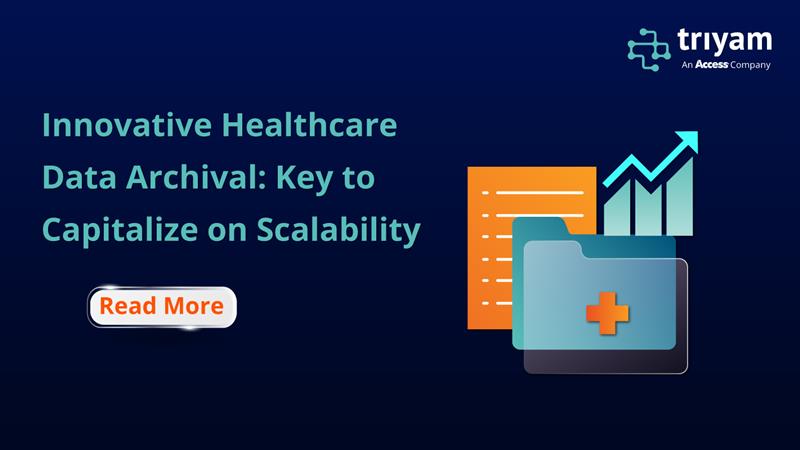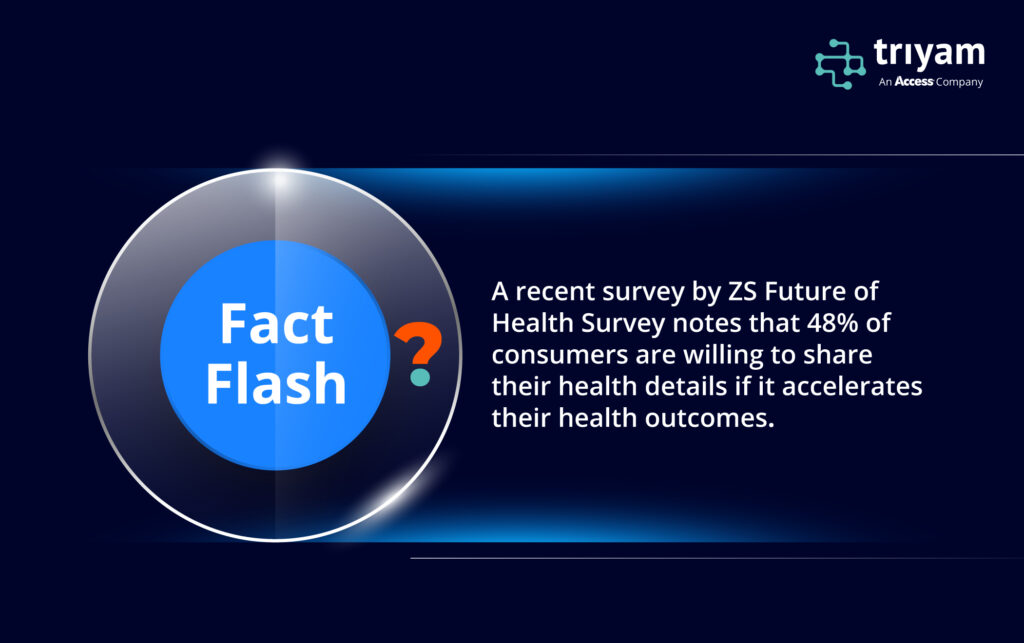The healthcare cloud market is expected to surpass $89 billion by 2027, highlighting the importance of scalable data archiving systems. To effectively manage the exponentially growing healthcare data volume and top-notch interoperability leveraging innovation for scalability is imperative.
Scalability as a Force Multiplier
What is scalability in healthcare data management? The fastest-growing aspect of the industry, it is the capability of systems to accommodate increasing workload, user demands and process complexities a system’s ability to handle increasing workloads, data volumes, and user demands without compromising performance.
The strategic construct of cloud computing facilitates effective storage and retrieval of vast amounts of patient information, effectuating seamless operational, administrative and financial routes. This leads to expanding agility and adaptability to address future challenges. Innovative data practices allow organizations to securely store, share, and analyze vast amounts of data on budget.
Maximizing Data Quality for Effective Data Archival
A key perk of innovative scalability is accurate, consistent, and complete data for better decisions and patient care. Here’s more:
- Data Accuracy at Source – As per AHIMA, up to 30% of patient records contain errors. Capturing clean data from EHRs, diagnostics and wearables is crucial.
- Integrated Data – Merging data from diverse sources builds a unified patient view and supports better clinical decisions.
- Enforce Data Governance – Strict rules for data entry, access and sharing ensure regulatory compliance and consistency.
- Use Quality Tools – Advocate advanced tools checks duplicates, errors and maintains format standards. Automation enhances reliability.
- Scalable Built – Cloud or modular systems grow with data for future analytics.
Scalable Data Security and Privacy
To prevent data breaches and meet strict regulations like HIPAA and GDPR, organizations must implement advanced security strategies such as a zero-trust approach and regular security audits. Scalable access controls allow authorized users to access sensitive data, helping protect privacy, avoid legal risks, and build patient trust in digital health systems.
Here are 5 key benefits of scalable security:
- Regulatory Compliance
- Reduced Breach Risk
- Stronger Patient Trust
- Secure Data at Scale
- Controlled Access Management
Key tools to ace patient data protection:
- Zero-trust architecture ensures no user or device is trusted by default.
- Encryption protects data during storage and transmission.
- Access controls and security testing limit data access and identify vulnerabilities.
Scalable Cloud Solutions for Optimal Data Management
Advanced tech enhances predictive analytics, real-time trend analysis, and early intervention. Automating tasks such as data entry, diagnosis support, and resource allocation boosts operational efficiency, allowing focused care. With personalized treatment plans, both quality of care and organizational performance are improved. Take a concise look:
- Predictive Analytics for identifying health risks.
- Real-time Trend Analysis for early interventions.
- Automation of Routine Tasks to reduce administrative burdens.
- Personalized Treatment Plans based on patient data.
- Improved Operational Efficiency through scalable systems.
Patient Engagement
Here’s how scalable tech practices in favors patient experience:
- Secure Data Access for patient empowerment.
- Mobile Apps & Portals for direct communication with providers.
- Active Patient Participation in care management.
- Feedback Integration to improve care quality.
- Improved Patient Satisfaction through better engagement.
How Cloud Affects Real-World Applications
Cloud-based systems improve EHR storage, interoperability, data exchange, advanced diagnostics and personalized treatments, especially in specialized fields like oncology and cardiology, and enabling real-time services like telemedicine and remote monitoring.
Key effects of cloud solutions:
- Improved EHR Storage for better data management.
- Enhanced Interoperability between healthcare providers.
- Telemedicine & Remote Monitoring for accessible care.
- Scalable Data Sharing to handle increasing demand.
- Personalized Treatment enabled by data-driven insights.
Challenges in Implementing Scalable Data Archival Systems
- Data security and privacy concerns sensitive patient information.
- Regulatory compliance with standards like HIPAA and GDPR.
- Complex migration from legacy systems to scalable solutions.
- Staff Training on new cloud-based technologies and systems.
- Unskilled professionals for advanced data management and cloud technologies.
Connect with Triyam for detailed information on scaling health outcomes with innovative data archival!


